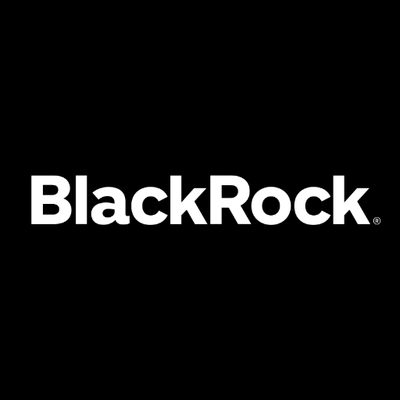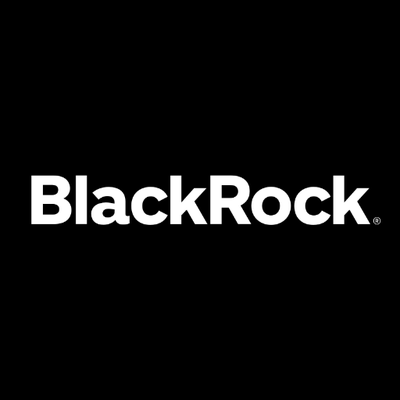BlackRock Income and Growth Investment Trust plc (LON:BRIG) has announced its latest portfolio update.
All information is at 31 May 2021 and unaudited.
For more information on the BlackRock Income and Growth Investment Trust and how to access the opportunities presented by the income and growth sector, please visit: www.blackrock.com/uk/brig
Performance at month end with net income reinvested
| One Month | Three Months | One Year | Three Years | Five Years | Since 1 April 2012 | |
| Sterling | ||||||
| Share price | 1.1% | 10.7% | 19.7% | 1.9% | 23.4% | 94.5% |
| Net asset value | 1.0% | 9.9% | 20.6% | 4.7% | 31.5% | 92.6% |
| FTSE All-Share Total Return | 1.1% | 9.6% | 23.1% | 5.9% | 40.5% | 86.1% |
| Source: BlackRock |
BlackRock took over the investment management of the Company with effect from 1 April 2012.
At month end
Sterling:
| Net asset value – capital only: | 198.88p |
| Net asset value – cum income*: | 202.68p |
| Share price: | 186.00p |
| Total assets (including income): | £48.2m |
| Discount to cum-income NAV: | 8.2% |
| Gearing: | 5.8% |
| Net yield**: | 3.9% |
| Ordinary shares in issue***: | 21,802,066 |
| Gearing range (as a % of net assets): | 0-20% |
| Ongoing charges****: | 1.19% |
* Includes net revenue of 3.80 pence per share
** The Company’s yield based on dividends announced in the last 12 months as at the date of the release of this announcement is 3.9% and includes the 2020 final dividend of 4.60p per share declared on 01 February 2021 and paid to shareholders on 12 March 2021 and the 2020 interim dividend of 2.60p per share declared on 24 June 2020 and paid to shareholders on 1 September 2020.
*** excludes 10,081,532 shares held in treasury
**** Calculated as a percentage of average net assets and using expenses, excluding performance fees and interest costs for the year ended 31 October 2020.
| Sector Analysis | Total assets (%) |
| Support Services | 10.6 |
| Pharmaceuticals & Biotechnology | 8.5 |
| Financial Services | 8.2 |
| Household Goods & Home Construction | 7.9 |
| Mining | 7.3 |
| Oil & Gas Producers | 6.0 |
| Personal Goods | 5.4 |
| Banks | 5.3 |
| Life Insurance | 4.5 |
| Travel & Leisure | 4.3 |
| Media | 4.0 |
| General Retailers | 3.8 |
| Tobacco | 3.7 |
| Health Care Equipment & Services | 3.3 |
| Nonlife Insurance | 3.2 |
| General Industrials | 2.4 |
| Food & Drug Retailers | 1.9 |
| Industrial Metal & Mining | 1.6 |
| Electronic & Electrical Equipment | 1.5 |
| Electricity | 1.0 |
| Technology Hardware & Equipment | 0.9 |
| Real Estate Investment Trusts | 0.7 |
| Industrial Engineering | 0.6 |
| Real Estate Investment & Services | 0.4 |
| Net Current Assets | 3.0 |
| —– | |
| Total | 100.0 |
| ===== |
| Country Analysis | Percentage |
| United Kingdom | 89.7 |
| United States | 3.2 |
| France | 2.8 |
| Italy | 1.0 |
| Sweden | 0.3 |
| Net Current Assets | 3.0 |
| —– | |
| 100.0 | |
| ===== |
| Top 10 holdings | Fund % |
| AstraZeneca | 6.6 |
| Rio Tinto | 5.3 |
| Reckitt Benckiser | 4.5 |
| Unilever | 4.1 |
| RELX | 4.0 |
| British American Tobacco | 3.7 |
| Royal Dutch Shell ‘B’ | 3.5 |
| Smith & Nephew | 3.3 |
| Ferguson | 3.1 |
| Standard Chartered | 3.0 |
Commenting on the markets, representing the Investment Manager noted:
Performance Overview:
The Company returned 1.0% during the month, underperforming the FTSE All-Share which returned 1.1%.
Market Summary:
Global equities rose in May as strong vaccination deployment continued in developed market countries. Health Care shares responded to the US government’s announcement of willingness to support a World Health Organisation proposal to temporarily waive patents on Covid-19 vaccines.
Equity markets proved hyper-sensitive to inflation indicators and grappled with the Federal Reserve’s new framework. Federal US Inflation numbers came in beating consensus, with a 4.2% Year-on-Year1 increase driven by the US economic recovery kicking into gear and energy prices jumping higher. The increase of the headline CPI rate was the fastest since September 2008, while the monthly gain in core inflation was the largest since 1981. Federal Reserve officials reacted by noting that they see the current rise as temporary and not likely to influence policy.
A huge drop and snap back in cryptocurrency prices rippled into traditional asset classes; some government bonds gained in price, while futures on the US benchmark S&P 500 equities index dipped and oil also pulled back after the price of bitcoin plunged on signs that China was preparing a crackdown on digital tokens.
In the UK, lockdown easing continued with the reopening of indoor dining and hotels on the 17th of May, however, a new variant of the coronavirus created some concerns around the planned return to normality scheduled for the end of June. Retail sales comfortably beat consensus for a second straight month. The reopening programme is releasing pent-up demand, notably for clothing in anticipation of long-awaited opportunities to socialise and travel. Most of the Office for National Statistic’s high-frequency UK indicators continued their recent recovery trends; notably, OpenTable’s measure of seated diners rose to 132% of the equivalent week in 2019. Other highlights included the proportion of the total workforce on furlough slipping to 8%, with 60% of employees now at their normal place of work.
The FTSE All Share rose 1.1% with Health Care, Utilities and Industrials as top performing sectors while Telecommunications and Consumer Services underperformed.
Stocks:
John Laing was the top contributor following the bid for the company by the private equity firm KKT. We had owned John Laing in the Company since shortly after its IPO in 2015; in this time, the position had generated c. 260 basis points of out-performance for the Company. Bodycote was another top positive contributor to the Company; the company had a trading update that was modestly better than expected with revenues showing signs of improvement while margins have proved resilient. Sentiment towards the sector has also been improving with Airbus, for example, seeking to increase aircraft production rates. Another contributor was recruitment company, Hays which lifted its outlook on annual profit as improving fees and underlying cost management bolstered performance.
The largest detractor was Electrocomponents which delivered strong results during the period but fell back in absence of full year upgrade to numbers. Smiths Group was another top detractor during the period; the company announced an unexpected CEO departure.
Portfolio Activity:
During the month of May, we sold John Laing following its bid. We also sold our position in Burberry. Burberry was one of the positions the Company purchased during the initial COVID dislocation. Whilst we remain constructive on the stock specific turnaround at Burberry, the shares have rallied c. 50% from the lows and we believe its prospects are now much more fairly valued.
We added substantially to our Direct Line position following the final FCA review; we believe in the long-term cash generation of the group which supports a healthy dividend and buyback. We also added to our Legal & General and THG positions.
Outlook:
Despite the continuation of Covid-19 lockdowns globally, economic activity has been less impacted as consumers and corporates have adapted their behaviours since the development of effective vaccines. Looking ahead, the focus is firmly on the cyclical recovery buoyed by ongoing monetary and fiscal support overwhelming concerns around virus variants.
As economic activity rebounds this has caused some strains on supply chains with specific industry shortages as well as building inflationary pressures including significant increases in commodity prices versus 12 months ago. The prospect of higher inflation has driven bond yields higher with central bankers indicating their willingness, for now, to stay on the side-lines. We are also cognisant of the evolution of relationships between China and the West and the potential impact on industries and shares.
Turning to the UK specifically, the recent published Bank of England report showed continued momentum in UK GDP with expected growth the fastest in post-war records as the UK recovers from an extremely weak Covid-impacted 2020. This is against a backdrop of UK valuations that have been extreme, trading at multi-decade lows versus other international markets with a recent flurry of M&A deals highlighting the dispersion and value on offer in the FTSE. We continue to believe that this dispersion should narrow given the increased certainty and reduced risk regarding Brexit in addition to the UK’s strong vaccination effort.
We view the dividend outlook for the UK market with renewed optimism as we expect dividends, in aggregate, to be more resilient and to grow faster in the future as those companies that had been overdistributing for a number of years reset their dividends during the pandemic. Resilience was a crucial feature of the Company and its underlying holdings in 2020 and while this will still be important in 2021, we are excited by the approaching economic recovery and the opportunity to deliver strong capital and dividend growth for our clients over the long-term.
1 source: https://www.ft.com/content/dfffa56a-6450-4a58-97a6-b3d12ea72d9c
For more information on the BlackRock Income and Growth Investment Trust and how to access the opportunities presented by the income and growth sector, please visit: www.blackrock.com/uk/brig





































